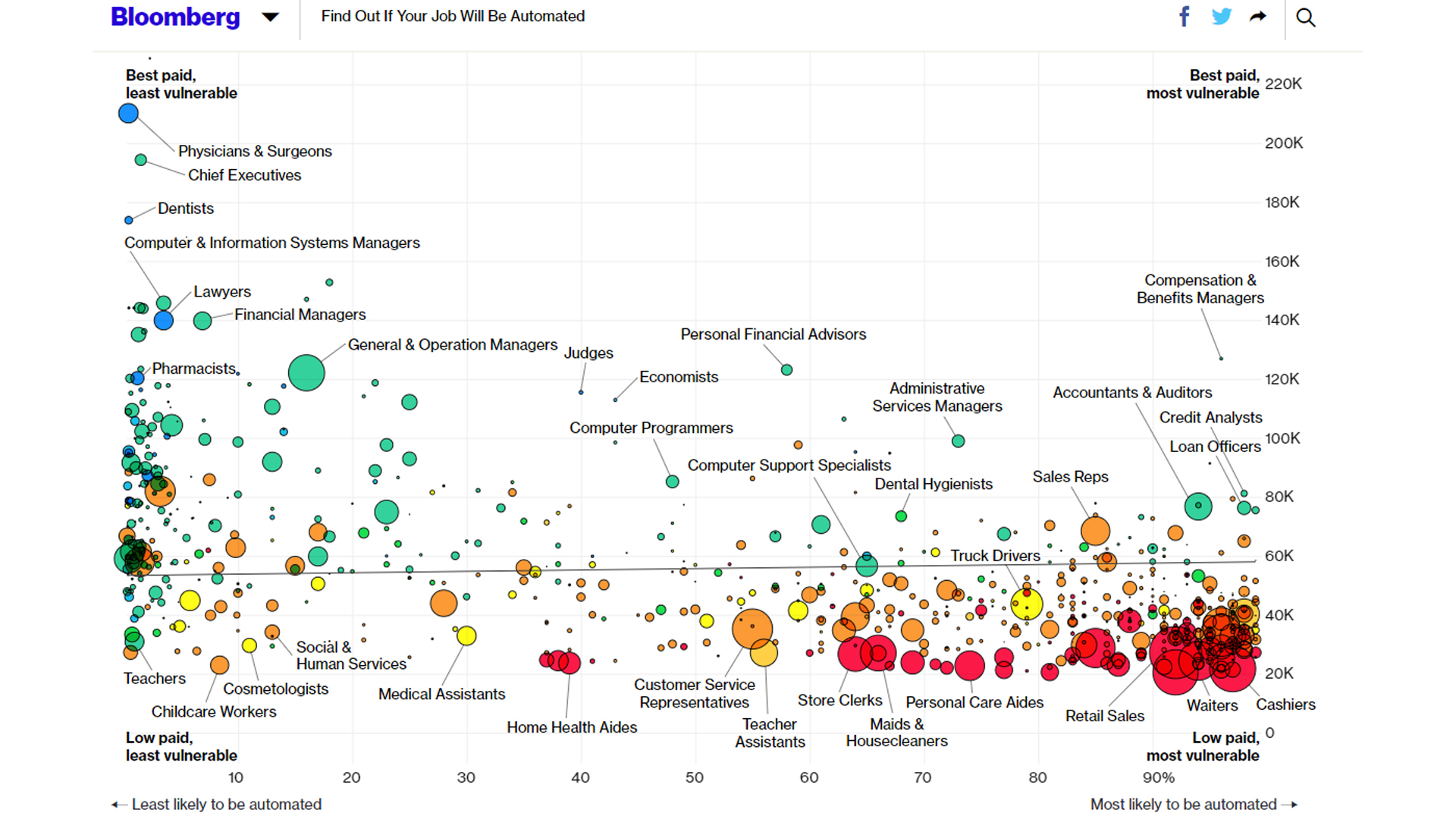
Beyond the Information Age
It’s a cool fall day in 1965. The alert has been sent. The Russian’s have launched a nuclear attack against high importance targets in the United States. San Antonio is one such target due to the large population and extensive military presence. Part of that military presence is Randolph Air Force Base, home of payroll for the USAF. That payroll is run by powerful computers which at this time, take up a footprint that nearly fills an entire aircraft hanger. A fleet of semi-trucks is deployed, taking a mobile version of this computing power on the road. Obviously, this attack never happened but it was feared and that concern led to a research and development program. To get to the point, all of this computing power could be mobilized at the program took decades of effort by hundreds of engineers and technicians. Nearly all of these individuals had college degrees, most with advanced college degrees and only a few with associate’s degrees or less. Today, with the information age maturing, there are high school students building robots for competition with more processing power than that 1965 USAF system.
There is no doubt that a career and technology education is vital to the continued success of our students and the economy. This is why the federal government and the state continue to focus on and fund these programs. In a way, CTE is the path for sustainable lifetime success other than what is now the traditional college route. I also believe that the college experience and the broad spectrum exposure to multiple disciplines create well-rounded individuals that enhance every profession.
The question I have is; do we need to update our concepts of what should be a college degree and what should be part of the other paths? Gen X and Millennials have grown up in the latter stages of the information age, and yet our college choices and CTE offerings reflect distinctions made during the early stages of the information age or even late industrial age. I believe the careers of the future will be heavily based on machine language, coding, and creativity. As technologies like heavily interconnected and automated systems, neural networks, artificial intelligence, and subscription based services grow, I believe we are shifting from an information access age to an information creation age. This shift will again drive career paths. This shift will also push another tier of industrial age jobs towards automation or obsolescence.

As an example, at the point where self-driving cars are the normality, there will also be a convergence with subscription-based vehicles. Self-driving cars should have a vastly lower accident rate, driving down the need for repairs. In addition, once manufacturers’ maintain ownership of the vehicle and thus responsibility for repair costs, they will begin designing vehicles for higher durability and easier maintenance; again driving down the need for repairs. At the same time, the implementation of self-driving cars on subscription will increase the need for software support; both developing the driving software, as well as the scheduling software.
This prior example is my belief of the near term future, but examples already exist in today’s workforce. Computer science continues to be a popular college career, but more and more, we are seeing the jobs that they are eligible for do not require that degree. Instead, certifications from Microsoft, Oracle, Cisco, and so many other tech giants, as well as experience with modern coding languages are the key to employment. The college degree becomes a differentiator indicating well rounded individuals that may be more suited to management. One of my roles at VLK is overseeing our IT infrastructure. Our support and help desk functions are run through a third party. During our search and evaluation of this third party, I was more concerned about the certifications and real world experience of the technicians that would be working with us more than about their college degrees or experience.
These shifts are coming. High school students today are being well served by the current CTE offerings. The window is still there for them to successfully go through their lives and careers based on what they are learning today. Yet, I think kindergarteners will need new CTE paths by the time they are in high school. I believe most of these paths will be tied to information creation; coding and making. This will require a different type of facility and approach. This belief drives me to ensure our high school designs have the adaptability to meet the changing curriculum that will meet the demands of the next age.